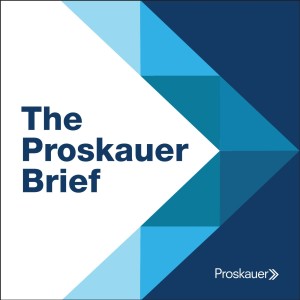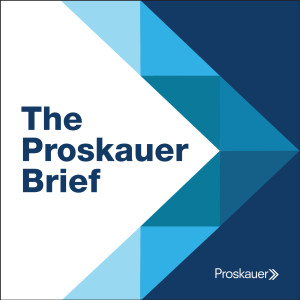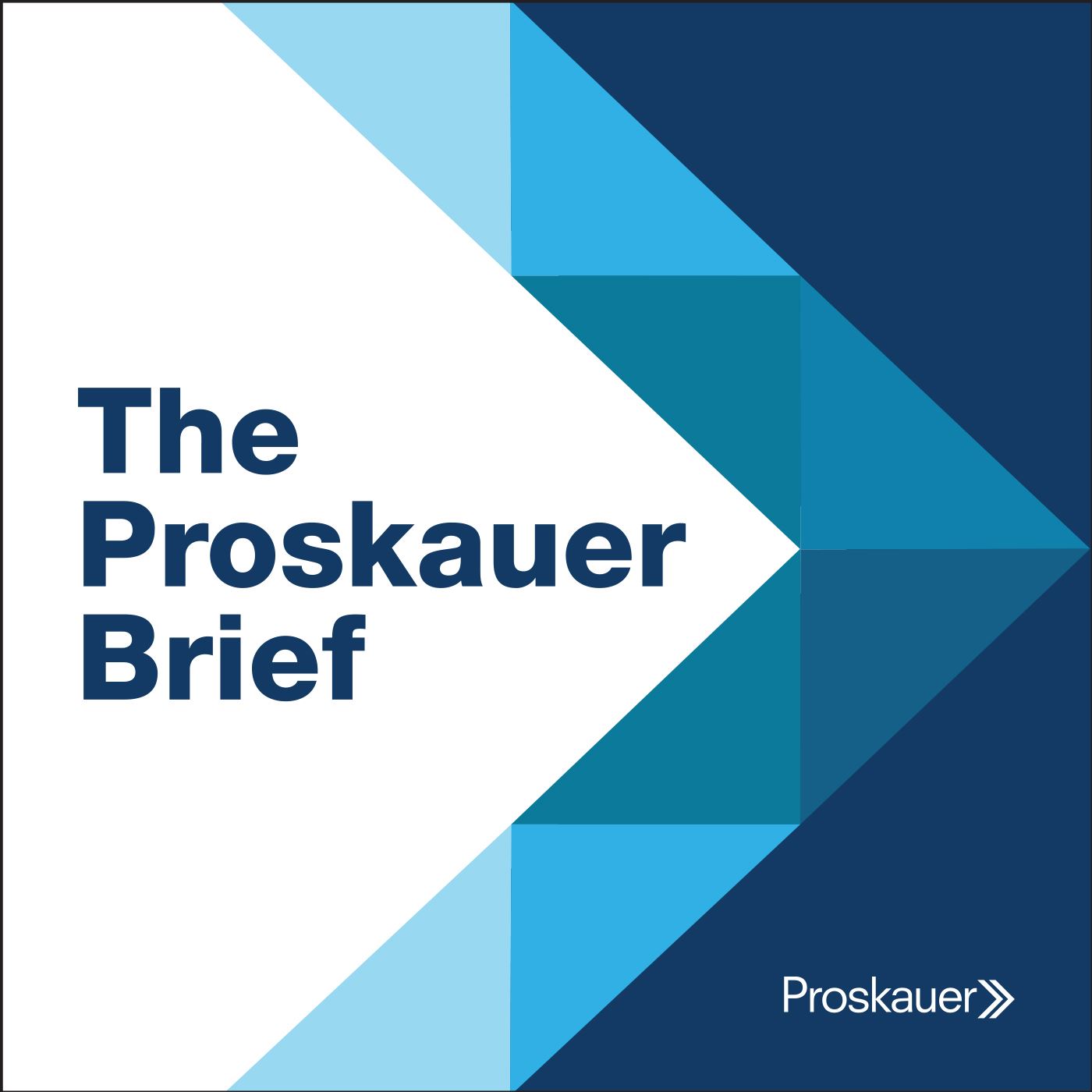
Episodes

Thursday Oct 15, 2020
Thursday Oct 15, 2020
In this episode of The Proskauer Brief, partners Harris Mufson and Guy Brenner discuss the Trump administration’s recent Executive Order on Combating Race and Sex Stereotyping, which restricts the concepts that government contractors can include in their employee diversity and awareness training programs. It also imposes certain penalties and sanctions, including debarment for failure to comply. Tune in as we discuss key considerations for government contractors in the wake of the order.

Thursday Oct 08, 2020
Thursday Oct 08, 2020
In this episode of The Proskauer Brief, partner Harris Mufson and associate Phil Lebel discuss recent legal developments in California, specifically a new supplemental paid sick leave law and coronavirus (COVID-19) exposure notification requirements. Tune in as we discuss steps employers can take to ensure compliance with these new requirements.

Monday Oct 05, 2020
Episode 36: DOL‘s Proposed Rule on Independent Contractors
Monday Oct 05, 2020
Monday Oct 05, 2020
In this episode of The Proskauer Brief, partners Harris Mufson and Allan Bloom discuss the U.S. Department of Labor’s proposed new rule on independent contractor classification. In recent years, the misclassification of workers as independent contractors has been the subject of a number of private lawsuits and investigations by government agencies. This is true for traditional industries and also companies within the gig economy, which rely heavily on independent contractors. So be sure to tune in as we address how this proposed rule may impact employers’ classification of workers.

Tuesday Mar 24, 2020
Episode 35: Recent Developments Associated With The Coronavirus Pandemic
Tuesday Mar 24, 2020
Tuesday Mar 24, 2020
In this episode of The Proskauer Brief, partners Harris Mufson, Seth Safra, Mike Lebowich and Guy Brenner discuss recent developments associated with the coronavirus (COVID-19) pandemic. Tune in as we address the latest legislative developments and issues employers should be thinking about when confronting the ramifications of this virus in the workplace.

Tuesday Feb 04, 2020
Episode 34: How Employers Can Deal With The Coronavirus
Tuesday Feb 04, 2020
Tuesday Feb 04, 2020
In this episode of The Proskauer Brief, partners Harris Mufson and Guy Brenner discuss the coronavirus and what employers should be thinking about regarding that virus in the workplace. While the Occupational Safety and Health Administration has stated that most American workers are not at significant risk of infection at this time, it’s never too early for employers to consider how they can address employees’ concerns and help prevent an outbreak and address one if it occurs. Tune in as we discuss practical tips and advice for employers who are thinking about being proactive in terms of confronting the potential issues associated with the coronavirus.

Thursday Jan 02, 2020
Episode 33: Reductions in Force
Thursday Jan 02, 2020
Thursday Jan 02, 2020
In this episode of The Proskauer Brief, partners Harris Mufson and Evandro Gigante discuss considerations and best practices associated with reductions in force. Companies that make a business decision to reduce its staffing should consider what goals they are looking to achieve. Is it cost reduction or a consolidation of positions? Or is it to weed out lower performing employees? These considerations will tend to inform whether the employer decides to do a voluntary reduction in force or involuntary reduction in force. Tune as we discuss practical tips for employers considering a RIF.

Monday Nov 18, 2019
Episode 32: California's Legislative Response to the #MeToo Movement
Monday Nov 18, 2019
Monday Nov 18, 2019
In this episode of The Proskauer Brief, partners Tony Oncidi and Kate Gold discuss California's most recent legislative response to the #MeToo movement. These developments include new restrictions on confidentiality and arbitration as well as the extension of the statute of limitations applicable to harassment, discrimination and retaliation claims. So be sure to tune in as Tony and Kate highlight the most important new laws facing California employers in the Age of #MeToo.

Thursday Oct 31, 2019
Episode 31: State Laws Regarding Voting Leaves & Political Activities By Employees
Thursday Oct 31, 2019
Thursday Oct 31, 2019
In this episode of The Proskauer Brief, partners Harris Mufson and Evandro Gigante discuss recent updates in state laws regarding voting leaves and political activities by employees. Currently twenty-two states have laws on the books that require some form of paid voting leave for employees. With Election Day right around the corner, New York recently changed their law so that an employee is entitled to as much time off as needed that’s going to enable that employee to vote in an election, up to which three of those hours have to be paid. Given the wide range of laws governing employee voting and political activities, employers should review their policies to insure that they are compliant with applicable state law.

Thursday Oct 10, 2019
Episode 30: U.K. Law for U.S. Employers
Thursday Oct 10, 2019
Thursday Oct 10, 2019
In this episode of The Proskauer Brief, New York partner Howard Robbins and London partner Dan Ornstein discuss how U.K. laws affect U.S. employers. As if dealing with U.S. employment laws are not difficult enough, international businesses also have to face several challenges of local requirements. Tune in as we discuss many U.K. laws on discrimination, harassment, and retaliation, and their similarities to U.S. counterparts. In addition we will highlight what impact Brexit may have on U.K. employment law, including changes in relation to the protections of part-time or agency workers, and workers in the gig economy.

Thursday Aug 29, 2019
Episode 29: New York State Expanded Protections Against Workplace Harassment
Thursday Aug 29, 2019
Thursday Aug 29, 2019
In this episode of The Proskauer Brief, partner Evandro Gigante and associate Arielle Kobetz discuss the recent developments out of New York State, that will significantly expand workplace anti-discrimination protections. Among other things, recent amendments to New York law will lower the burden on plaintiffs seeking to prove claims of workplace harassment under the Human Rights law. Employers should tune in to see what impact the new law may have on the scope of harassment claims and what changes to policies or practices should be implemented.
